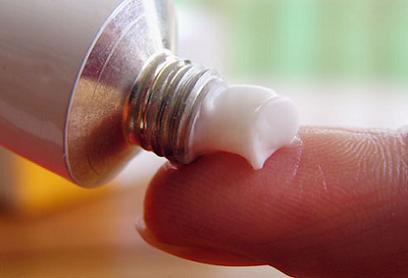 Could itchy skin be worse than a life-threatening health condition like diabetes or high blood pressure? When scientist asked 92 adults with severage eczema about the quality of their daily lives, they reported that having one of those serious medical problems might be easier than dealing with itchy, bumpy, scaly, skin all the time. Half said they would trade up two hours a day of their lives for normal skin, and 74 vowed they’d spend over $1,000 for a cure. Experts are still trying to identify the culprits behind eczema. While the causes aren’t fully understood, allergies, dry skin, and low levels of a skin-protecting protein may play roles. But eczema eruptions don’t have to rule your life. These strategies can help you avoid flare-ups and outsmart the “itch, scratch, itch” cycle that can make skin worse when you do have one.
Could itchy skin be worse than a life-threatening health condition like diabetes or high blood pressure? When scientist asked 92 adults with severage eczema about the quality of their daily lives, they reported that having one of those serious medical problems might be easier than dealing with itchy, bumpy, scaly, skin all the time. Half said they would trade up two hours a day of their lives for normal skin, and 74 vowed they’d spend over $1,000 for a cure. Experts are still trying to identify the culprits behind eczema. While the causes aren’t fully understood, allergies, dry skin, and low levels of a skin-protecting protein may play roles. But eczema eruptions don’t have to rule your life. These strategies can help you avoid flare-ups and outsmart the “itch, scratch, itch” cycle that can make skin worse when you do have one.
Avoid Hidden Trigger
Many everyday can rub hypersensitive skin the wrong way. Among them: perfumes and dyes in laundry and personal care products, dust, cigarette smoke, walking barefoot in sand (or letting it rub the creases of your legs or arms at the beach), and chlorine or bromine left on the skin after swimming in a pool or soaking a hot tub. Avoid them or get them off your skin as soon as possible. Sunburn is another trigger.
Bathe Less Often
Long, hot baths or showers can take the natural oils out of skin, making it drier and more easily irritated. While some experts recommend a long soak in a tepid tub to soothe skin, many others say it’s better to go a day or two between showers or baths. When you do wash up, keep it short and use warm – not hot – water. Use a mild soap that’s not too drying; avoid antibacterial or deodorant soaps, which may strip more moisture from your skin. In fact, use soap only where you really need it: on your face, underarms, genitals, hands, and feet. Try using just water everywhere else. When you’re done, pat yourself dry, then slather on moisturizer.
Keep Your Skin Super-Moist
If you have eczema, you know firsthand how dry, itchy, and sensitive your skin is, and that dryness makes itching and rashes even worse. That’s why it’s important to apply a thick layer of moisturizer once or twice a day to seal the water in the top layer of skin. Keeping your skin moist may mean you’ll need les steroid cream to control rashes. In a Spanish study of 173 kids with eczema, those who were slathered daily with moisturizers needed 42 percent less high-potency steroid cream.
Be sure to apply moisturizer generously. In a German study of 30 adults with eczema, those who apply the amount theirs doctor recommended saw their itching, dryness, and skin crusting improve about 30 percent more than those who skimped. If you’re using moisturizer and a steroid cream, apply the steroid first.